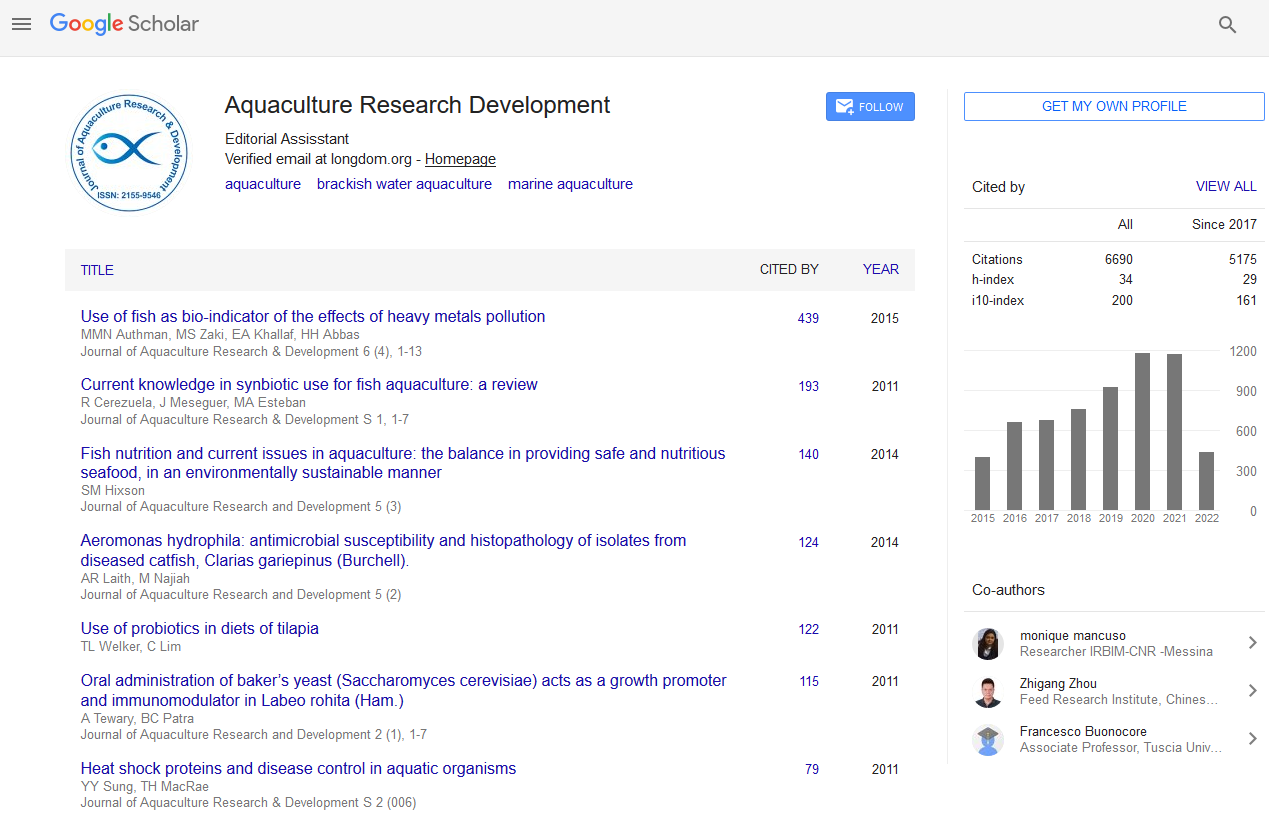PMC/PubMed Indexed Articles
Indexed In
- Online Access to Research in the Environment (OARE)
- Open J Gate
- Genamics JournalSeek
- JournalTOCs
- Scimago
- Ulrich's Periodicals Directory
- Access to Global Online Research in Agriculture (AGORA)
- Electronic Journals Library
- Centre for Agriculture and Biosciences International (CABI)
- RefSeek
- Directory of Research Journal Indexing (DRJI)
- Hamdard University
- EBSCO A-Z
- OCLC- WorldCat
- Scholarsteer
- SWB online catalog
- Virtual Library of Biology (vifabio)
- Publons
- MIAR
- University Grants Commission
- Euro Pub
- Google Scholar
Useful Links
Share This Page
Journal Flyer

Open Access Journals
- Agri and Aquaculture
- Biochemistry
- Bioinformatics & Systems Biology
- Business & Management
- Chemistry
- Clinical Sciences
- Engineering
- Food & Nutrition
- General Science
- Genetics & Molecular Biology
- Immunology & Microbiology
- Medical Sciences
- Neuroscience & Psychology
- Nursing & Health Care
- Pharmaceutical Sciences
Abstract
Probiotic Psychrobacter sp. improved the autochthonous microbial diversity along the gastrointestinal tract of grouper Epinephelus coioides
Hong-Ling Yang, Yun-Zhang Sun, Ru-Long Ma, Jiang-Sen Li and Kun-Peng Huang
The effect of dietary administration of probiotic Psychrobacter sp. SE6 for 60 days on the autochthonous microbiota in the foregut, midgut and hindgut of juvenile grouper Epinephelus coioides was assessed using polymerase chain reaction-denaturing gradient gel electrophoresis (PCR-DGGE). A complex and generally similar bacterial composition was present along the gastrointestinal (GI) tract of fish fed the probiotic or control diet. However, samples collected from the probiotic group and control group showed different DGGE patterns. The similarity dendrogram demonstrated that all nine samples from the control group were closely related and distinctly different to the probiotic samples. The total number of bands and Shannon index of the foregut, midgut and hindgut samples in the probiotic group were significantly higher than those in the control group, suggesting probiotic Psychrobacter sp. improved the autochthonous microbial diversity along the GI tract of E. coioides. Some potentially beneficial and uncultured bacteria were stimulated, while some potentially harmful species, such as Staphylococcus saprophyticus, were suppressed. Sequence analysis showed that the majority of bacterial sequences (48.0%) in this study were highly similar to unidentified clones, suggesting a considerable proportion of unknown bacteria in the gut of E. coioides.


